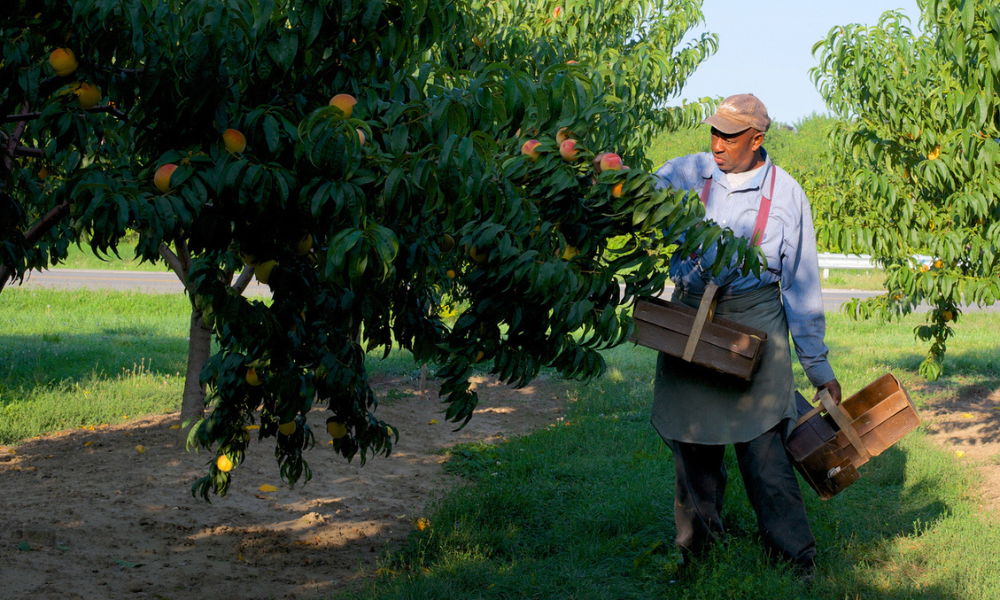Board could be paying out millions in retroactive compensation for claims dating back to 2007, says report

Ontario’s Workplace Safety and Insurance Board (WSIB) is changing how it interprets ‘suitable work available in the job market’ as it applies to foreign workers who are injured in a workplace in Canada.
“These are some of the most vulnerable people working in Ontario today and we owe it to them to be there if they get hurt on the job,” said Jeff Lang, president and CEO of the WSIB. “These are people who come to work our farms, grow our food, and contribute to our economy. If they get hurt while they do it, our responsibility does not end when they return to their home country.”
Under legislation, if someone who was injured at work cannot return to their original job but is able to return to other work, the WSIB is obligated to adjust their income replacement payments to reflect that suitable and available work.
But this has been interpreted to mean work available in Ontario, even for foreign agricultural workers unable to return to the province for non-farming work.
Effective immediately, that obligation is to be interpreted to mean suitable and available work in the person’s home job market, according to the WSIB.
“We took a look at this and I can’t justify the interpretation that was being taken,” said Lang. “I can’t say to an injured farm worker who was sent back to Jamaica that we are deducting the equivalent of an Ontario salary that is impossible for them to get. It’s not fair, it’s as simple as that. I know that’s what was happening and I’m sorry it did. We’re fixing it.”
In March, Ontario’s Bill 149 or the Working for Workers Four Act, 2024 received royal assent. The legislation enables additional “super indexing” increases to WSIB benefits above the annual rate of inflation.
WSIB to pay out ‘millions in retroactive compensation’
Following the change, WSIB will re-examine more than 50 claims filed since 2007 that received decisions based on suitable occupations in Ontario.
The WSIB pays workers 85 per cent of their salary if they are hurt on the job and unable to return to that role, but claws back money that is earned from other work, noted The Canadian Press in a report.
With the re-examination of claims, WSIB “will likely be paying out millions in retroactive compensation,” according to the report posted on CBC.
“This is about doing the right thing,” said Lang. “As a first priority we’re going to work with Ontario farming employers to help get more injured farm workers back to work. In cases where that is not possible and they return to their home country, we are going to treat them fairly.”
WSIB’s new Foreign Agricultural Worker Strategy
The WSIB has also put in place a new Foreign Agricultural Worker Strategy that emphasizes recovery and return to work in Ontario for foreign agricultural workers.
The strategy has three pillars:
- Prevention and compliance. WSIB will support the SAWP program, including both participants and employers, by providing services to enhance health and safety knowledge, prevent injuries and illnesses, and get people back to work sooner.
- Communication and engagement. WSIB will lead improved collaboration and information sharing between industry stakeholders, liaison offices/consulates, various government departments and labour advocates to better support SAWP participants who become injured/ill on the job.
- Case management. WSIB will enhance the claims process for SAWP participants to focus on recovery and return to work outcomes and recognize the realities of the local labour markets after they return home. This means available jobs in the person’s local labour market rather than in Ontario will be considered if a SAWP participant is injured at work and is unable to return to work on the farm.
Late in 2023, the WSIB issued an update to its Employers’ Initial Accident-Reporting Obligations policy, shortening the deadline for workplace injury reporting from seven business days to three.




